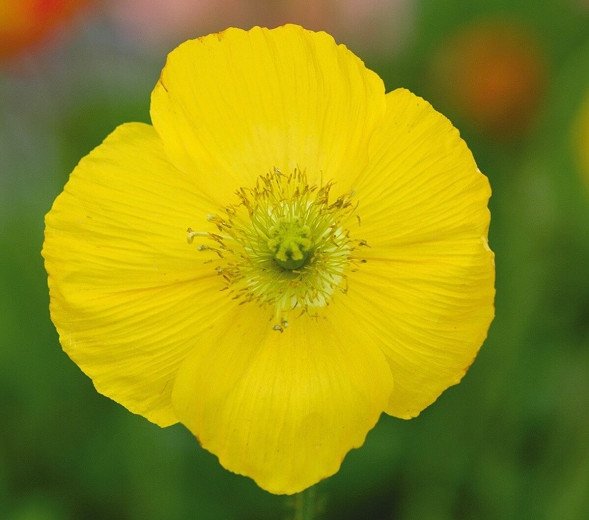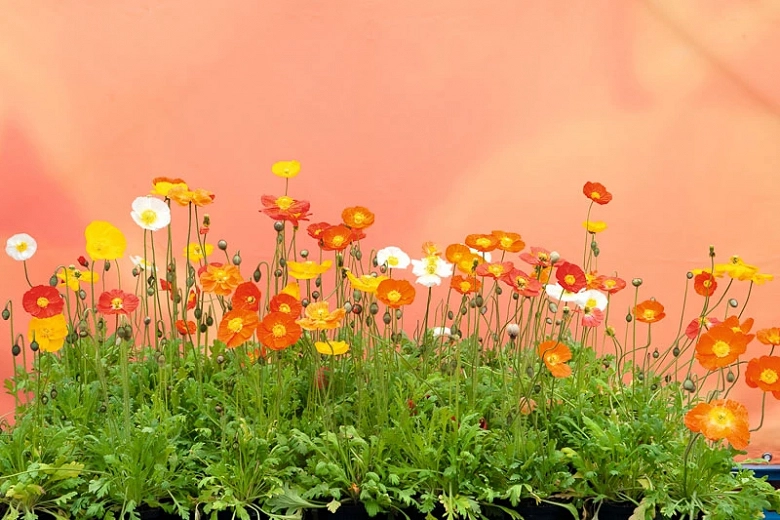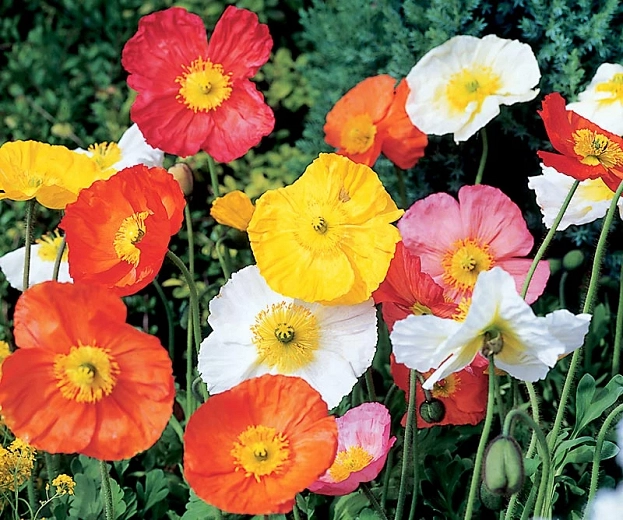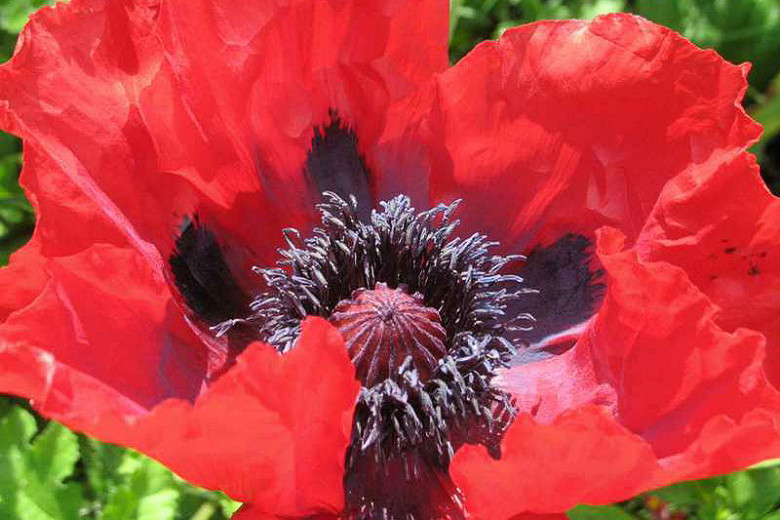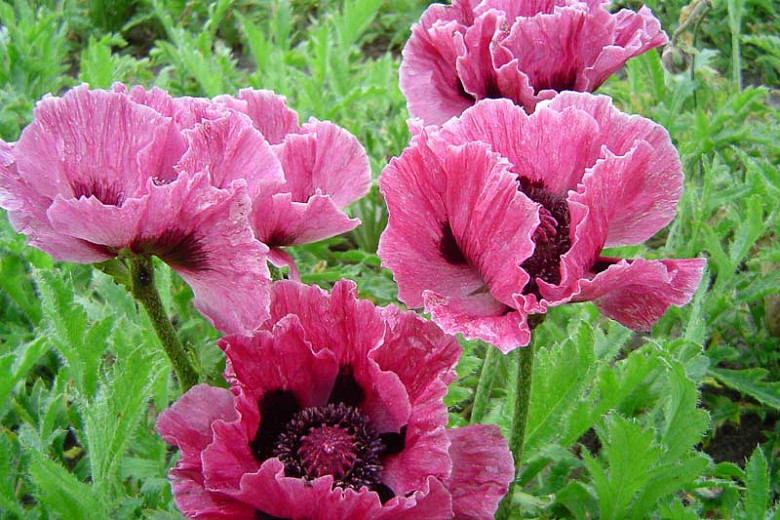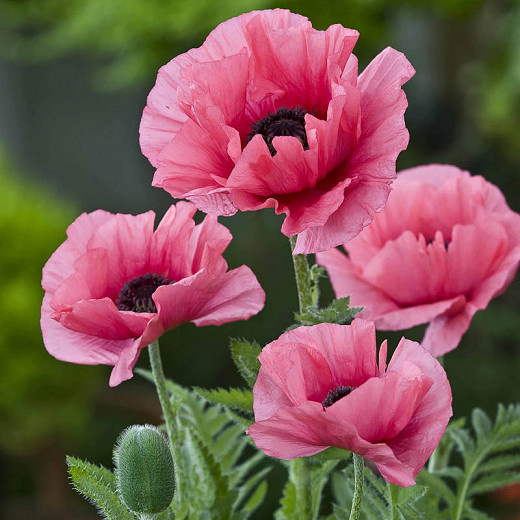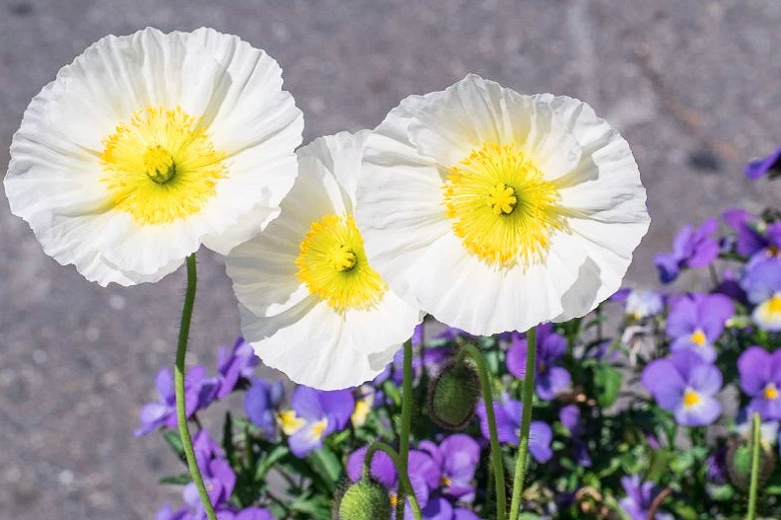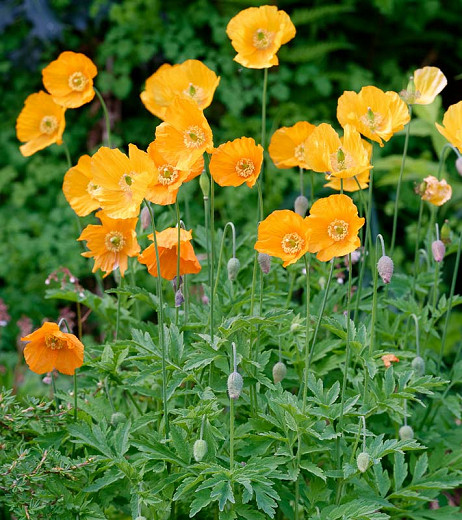Papaver nudicaule Champagne Bubbles Yellow (Iceland Poppy)
Papaver nudicaule ‘Champagne Bubbles Yellow’ (Iceland Poppy) is a biennial or short-lived perennial with large, mildly fragrant, bowl-shaped, brilliant orange flowers adorned with crinkled petals and golden stamens. Blooming from late spring to early summer, the satiny blossoms seem to float amid the garden on their hairy leafless stems.
Papaver nudicaule 'Champagne Bubbles Yellow' (Iceland Poppy) is a biennial or short-lived perennial with large, mildly fragrant, bowl-shaped, brilliant orange flowers adorned with crinkled petals and golden stamens. Blooming from late spring to early summer, the satiny blossoms seem to float amid the garden on their hairy leafless stems. They rise above a small, basal rosette of blue-green, pinnately lobed leaves. Hardy and fast-growing, the sparkling blossoms are extremely attractive to honey bees and bumblebees. They are simply stunning en masse or drifting through cottage or wild gardens. Iceland poppies are amongst the best poppies for cutting, as they last for several days in the vase.
- Grows up to 12-18 in. tall (30-45 cm) and 8-12 in. wide (20-30 cm).
- Prefers full sun to very light shade in organically rich, moderately fertile, evenly moist, well-drained soils. Iceland Poppy thrives in climates with cool summer temperatures, but struggles in hot and humid conditions.
- A pretty addition to beds and borders, city gardens, cottage gardens, or coastal gardens. Excellent cut flower for fresh arrangements.
- Easy to grow and virtually carefree.
- No serious pest or disease issues. Keep an eye out for aphids and downy mildew.
- Removing faded flowers will encourage more buds to form.
- Cut back after flowering.
- Propagate by seed, sowing in situ in the fall, or under cover in late winter for transplanting in spring.
- Papaver nudicaule is native to subpolar regions of Asia and North America, and the mountains of Central Asia as well as temperate China (but not in Iceland).
- All parts of this plant contain toxic alkaloids. They are likely to be poisonous to mammals, though the toxicity would be low.
Requirements
| Hardiness | 4 – 8 |
|---|---|
| Heat Zones | 2 – 9 |
| Climate Zones | 1, 1A, 1B, 2, 2A, 2B, 3, 3A, 3B, 4, 5, 6, 10, A2, A3 |
| Plant Type | Annuals, Perennials |
| Plant Family | Papaver – Poppies |
| Exposure | Full Sun |
| Season of Interest | Spring (Late)Summer (Early) |
| Height | 1' – 2' (30cm – 60cm) |
| Spread | 8" – 1' (20cm – 30cm) |
| Spacing | 6″ – 8″ (15cm – 20cm) |
| Water Needs | Average |
| Maintenance | Low |
| Soil Type | Chalk, Loam, Sand |
| Soil pH | Acid, Alkaline, Neutral |
| Soil Drainage | Well-Drained |
| Characteristics | Cut Flowers, Fragrant, Showy |
| Attracts | Bees, Butterflies |
| Garden Uses | Beds and Borders |
| Garden Styles | City and Courtyard, Coastal Garden, Informal and Cottage |
